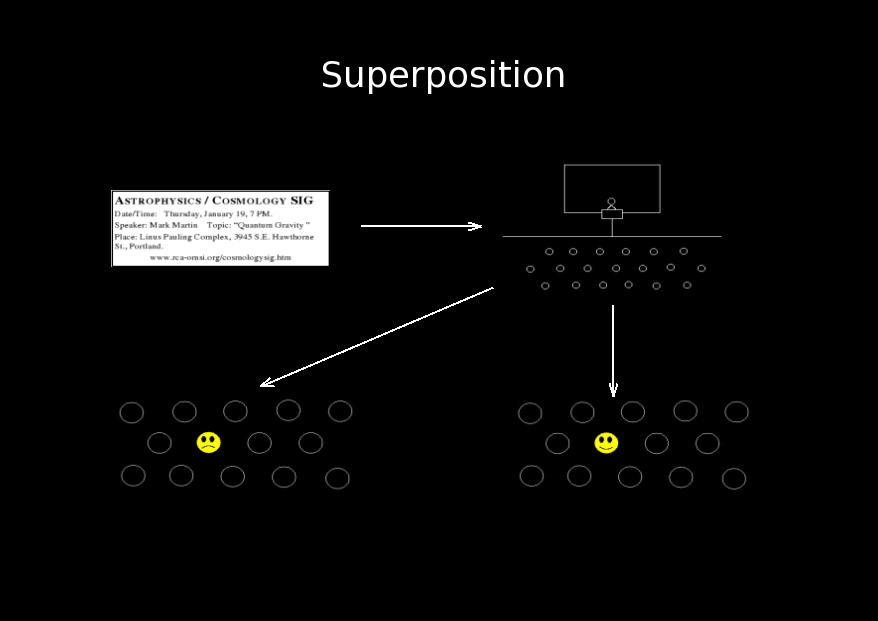










A central concept in quantum mechanics is the idea of superposition. Let me illustrate this idea with a concrete example.
When you heard about my talk, either through the Rosette Gazette, the web, or someone telling you, you didn't know whether it was going to be good or bad. In fact, no one did and, according to quantum mechanics, my talk wasn't good or bad from your perspective. It existed in a state that was some combination of goodness or badness, with specific probabilities of turning out to be good or bad if you made a measurement by attending it. In the words of quantum mechanics, the state of my talk was in a superposition of goodness and badness. It wasn't intrinsically one way or the other with probabilities that you would have a good or bad experience. It was literally in a combination of the two states. Physicists know that systems exist in states of superposition because those states differ from "pure" states in ways that are measurable.
Now, let's suppose that you attend my talk, as you're doing right now. Once you've heard it, you may decide that it was bad and be annoyed for wasting your time sitting through such drivel. Alternatively, you may decide that it was good and be happy that you spent your time listening to such an eloquent and insightful speaker. At that point, my talk is no longer in a superposed state for you. It is either definitively good or definitively bad. This outcome is the famous "collapsing of the wave function".
Until I measure your response after my talk, maybe by asking you or by looking at the expression on your face when I'm done, to me, you exist in a superposition of the states annoyed and happy. But once I measure you by, say, looking at your face, I find that you are annoyed or happy and no longer in some mysterious superposition of the two.
What makes quantum mechanics a consistent description of the universe is that the states that we measure are correlated. If you decide my talk is bad and I check to see what you thought, I will find that you are annoyed. Otherwise, it you decide that my talk is good and I ask your opinion, I will find that you are happy. I won't find that you are happy if you thought my talk was bad and I won't find you annoyed if you thought that my talk was good.
I am the author of the images and text except where otherwise indicated. Please contact me for permission if you wish to use any of my images or text.
Created on Wednesday 03 May 2006 by Mark A. Martin with KPresenter